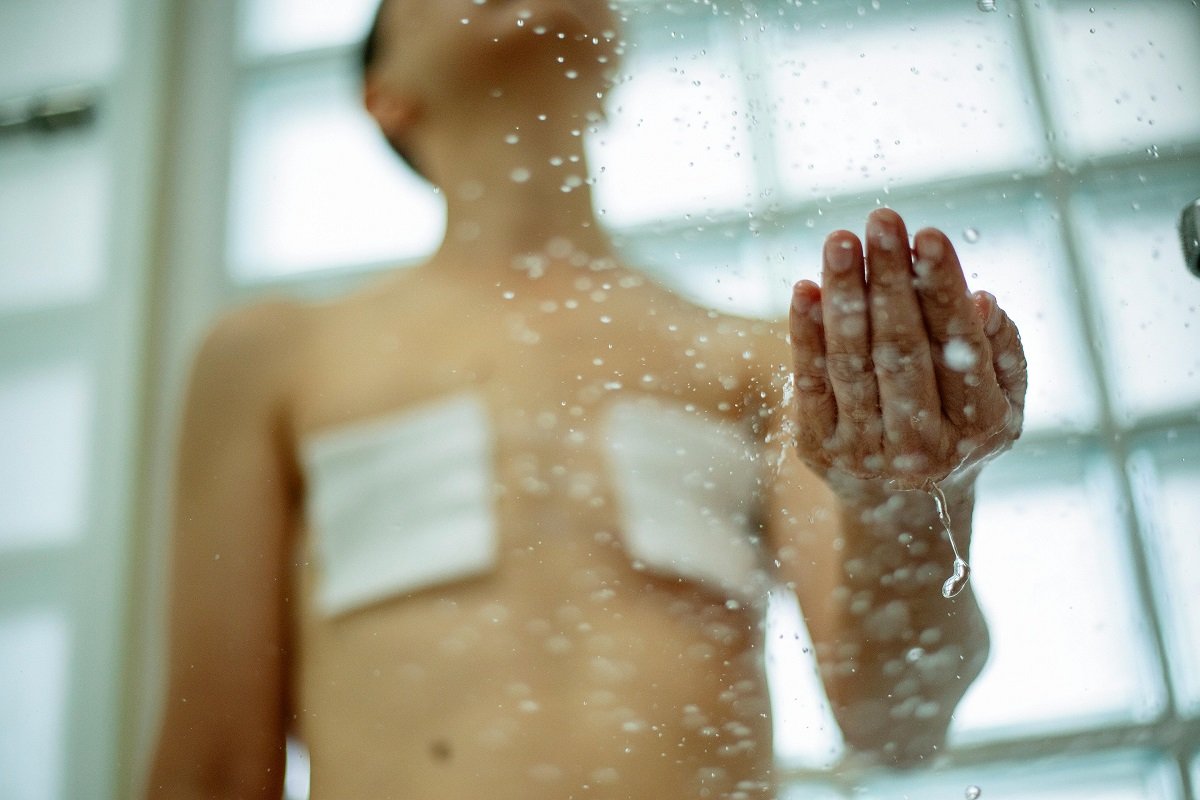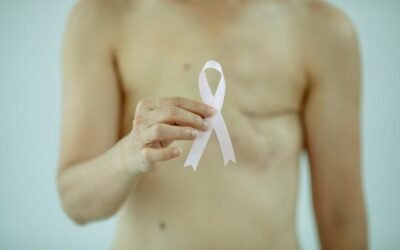Homeopathy for Skin Care During Radiation Therapy for Breast Cancer

Common Skin Side Effects of Radiation Therapy
- Radiation Dermatitis:
Redness, itching, and peeling of the skin.
May progress to more severe blistering and ulceration in some cases. - Dryness and Scaling:
Skin may become dry, flaky, and rough.
Increased susceptibility to cracks and infections. - Pigmentation Changes:
Darkening or lightening of the skin in treated areas. - Sensitivity and Pain:
Increased sensitivity to touch, heat, and friction.
Pain and discomfort in the treated area.
Common Homeopathic Remedies for Radiation-Induced Skin Issues
Here are some homeopathic remedies that may help manage skin problems during radiation therapy:
- Cantharis:
Effective for burning pain and blisters.
Useful for severe skin irritations and burns. - Calendula:
Known for its soothing and healing properties.
Helps in reducing inflammation, promoting wound healing, and preventing infections. - Radium Bromatum:
Specifically used for radiation burns and sensitivity.
Helps in managing chronic skin complaints induced by radiation. - Belladonna:
Suitable for red, hot, and swollen skin conditions.
Alleviates pain and discomfort associated with acute inflammation. - Urtica Urens:
Effective for itching, burning, and stinging sensations.
Suitable for minor burns and skin eruptions. - Sulphur:
Used for chronic skin conditions with itching, burning, and redness.
Helps in managing dry and scaly skin issues. - Arsenicum Album:
Useful for burning pain, dryness, and pigmentation changes.
Helps in reducing anxiety and restlessness associated with skin discomfort.
Integrating Homeopathy with Conventional Skin Care
- Medical Guidance:
Always consult a qualified homeopath before starting any remedies.
Communicate with your oncology team to ensure complementary approaches are safe and effective. - Holistic Approach:
Keep the skin clean and dry.
Use gentle, hypoallergenic skin care products free from alcohol, fragrances, and other irritants.
Avoid tight clothing and fabrics that may cause friction. - Supportive Therapies:
Apply recommended natural oils or ointments, such as aloe vera or coconut oil, under professional guidance.
Explore soothing baths with oatmeal or chamomile to relieve irritation. - Lifestyle and Diet:
Stay hydrated and consume a balanced diet rich in vitamins and antioxidants.
Avoid smoking and excessive sunlight exposure. - Monitoring and Adjustments:
Regularly monitor skin condition and report any changes to healthcare providers.
Adjust treatments as needed based on symptom changes and professional recommendations.
Precautions and Considerations
- Individualized Treatment: Homeopathic remedies should be personalized to the patient’s specific symptoms and health condition.
- Professional Guidance: Always use remedies prescribed by a qualified homeopath to ensure correct dosage and administration.
- Safety: Discuss all homeopathic and conventional treatments with healthcare providers to avoid interactions and ensure a cohesive care plan.
Case Studies and Evidence
While scientific studies on the effectiveness of homeopathy for managing radiation-induced skin issues are limited, anecdotal evidence suggests potential benefits, such as:
- Reduced pain and skin irritation.
- Faster healing and recovery of the affected skin areas.
- Improved overall skin health and resilience during radiation therapy.
Conclusion
Homeopathy can offer supportive care in managing skin side effects during radiation therapy for breast cancer. Through the use of homeopathic remedies, lifestyle adjustments, and proper skin care, patients may experience relief from symptoms and improved skin health. Always consult with healthcare professionals to create a comprehensive and safe treatment plan.
Homeopathy for Post-Surgical Healing in Breast Cancer Patients
Post-surgical healing in breast cancer patients involves managing physical pain, inflammation, and emotional recovery....
Supporting Emotional Resilience During Breast Cancer Treatment with Homeopathy
Breast cancer treatment can take a significant emotional toll on patients, often leading to anxiety,...
Homeopathy for Reducing Swelling and Inflammation After Breast Cancer Treatment
Swelling and inflammation are common side effects experienced by many breast cancer patients after treatments such as...





